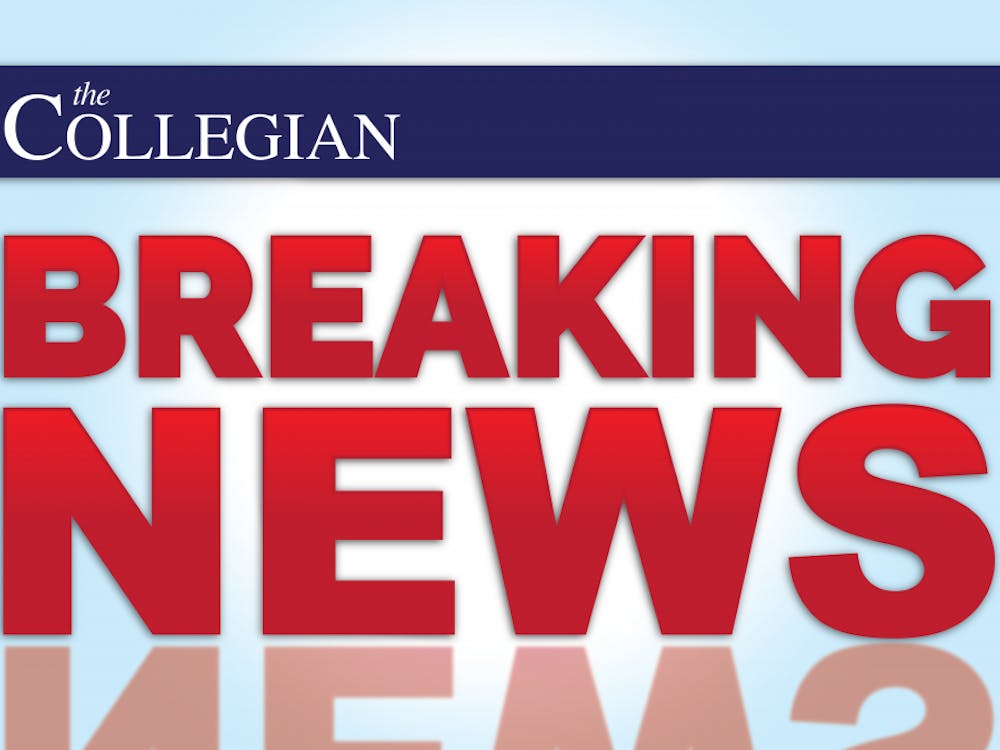During the first weeks back, some students may have noticed more new faces than usual while walking around campus.
There are first years and missing juniors who went abroad, but there are also 80 exchange students at the University of Richmond from 32 countries this fall. The increase of exchange students reflects the Office of International Education's new partnerships with universities across the globe.
Two students from one new partner, the University of Botswana, are here for the fall semseter, Duduetsang Babitseng and Dumisani Ntini. Babitseng is in her second year of study as an accounting major. She came to Richmond for the Robins School of Business.
"I decided to study abroad to experience the curriculum diversity, as well as the social aspects," Babitseng said.
"Getting away from the usual people."
Ntini, a second year finance major, also chose Richmond for the Robins School of Business.
"I wanted to study abroad as I felt it would help me appreciate the wider array of cultures and traditions that study abroad entails," he said. "I've gotten a chance to meet so many different people of diverse backgrounds."
The exchange program with the University of Botswana was signed about a year ago and began this fall. No students from Richmond are there now, but the Office of International Education hopes to send a few in the spring or next fall.
There are also two exchange students at Richmond this fall from Universite de Lausanne. It's not a new partner, but this is the first semester Richmond has received students from the school.
Maxence Decarre, in his third year studying business, is at Richmond from Lausanne for the academic year.
"I like the challenges," he said. "I like to discover new cultures and new people. I think that broadening our horizons is really important today and that's why I took the opportunity to study one year in exchange at the other end of the world."
Students from Richmond have also taken this opportunity. This semester, 260 Richmond students are studying abroad. Out of this total, 11 are abroad for the full academic year. Of the 260, 180 are female and 80 are male. There are 234 juniors, 12 seniors, 10 sophomores, three fifth years and one law student.
Enjoy what you're reading?
Signup for our newsletter
The number of students studying abroad this fall decreased from the fall 2009 semester, when a record 315 students studied abroad, with 266 being the highest number before that.
Director of study abroad Michele Cox and associate dean of International Education, Joseph Hoff, agreed that the numbers may have gone down this fall because this year's junior class is not as large as last year's and the U.S. economy is still recovering. They also mentioned that there are a lot of new things opening on campus this year, including the International Center, the E. Claiborne Robins Stadium and the coming addition to the Robins School of Business.
The most popular countries to study abroad this fall are Spain, with 44 students, Italy, 30, Denmark, 22, Australia, 21, and Scotland, 18. The most popular programs are Saint Louis University in Madrid, with 13 students, Universitat Pompeu Fabra in Barcelona, 12, and Danish Institute for Study Abroad in Denmark, 12.
"I think our students tend to be quite traditional in their study abroad choices," Cox said. Many students go to Western Europe and Australia. The Office of International Education is hoping to change that by opening more non-traditional programs.
Hoff said Spain might be so popular because it was a national trend that students think Spanish was an important language to learn.
"Spain is a fun, easy place to go," he said.
A new program available in Spain is Universidad Carlos III de Madrid. It is one of the most prestigious universities in Spain and offers business, economics, journalism, communication, humanities and law classes in English and Spanish, Cox said.
Not as many students went to Latin America, but some do, Cox said. This fall 11 students are in Argentina, four are in Chile and one is in Peru.
"Unfortunately, Latin America is still not a destination that comes to mind," Cox said.
She said the media skewed students' views, portraying it as a dangerous continent. But, she said students did have safe experiences there.
"There are lots of good, viable [programs]," Cox said.
Students now have the opportunity to study in Brazil at Pontificia Universidad Catolica de Rio de Janeiro. Cox said new programs were picked with curricular needs in mind. Portuguese for Spanish speakers has been offered at Richmond for a few years. Brazil is the largest country in South America and has one of the world's fastest growing economies, so it is important to have a partner there, she said.
Richmond students will have to enroll in a three-week, pre-semester Portuguese language and culture program before studying there and can then take classes in communications, international relations, computer science, sciences, design and law.
Contact staff writer Sarah Craig at sarah.craig@richmond.edu
Support independent student media
You can make a tax-deductible donation by clicking the button below, which takes you to our secure PayPal account. The page is set up to receive contributions in whatever amount you designate. We look forward to using the money we raise to further our mission of providing honest and accurate information to students, faculty, staff, alumni and others in the general public.
Donate Now


